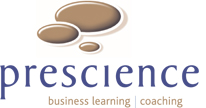An experiential programme working ‘real-time’ on assigned project activities. The Project Leadership programme integrates proven project management tools with Project Leadership skills development, enabling project leaders to engage project teams and stakeholders and achieve overall project success.
Overview
Successful, agile project working requires three components to be in place:
- Effective project management ‘Oversight’ processes and systems – invariably a responsive Stage and Gate process that enables the organisation to monitor project progress versus agreed deliverables and targets.
- Commitment throughout the business as to the way project activities will be deployed with line-management support for the cross-functional resource contributions of project leaders and project team members.
And, most importantly:
- That project leaders, are equipped with the knowledge and skills to enable them to engage project teams and stakeholders and successfully operate in a matrix context.
The Prescience Project Leadership programme is designed to provide participants with such requisite knowledge and skills to successfully lead multi-disciplinary project teams throughout all project stages.
Tailored to the organisation’s process and systems, the programme specifically focuses on project leadership skills development as opposed to just project management knowledge.
The programme centres on application of proven project leadership tools and methodologies to current live projects. Experiential learning is supported throughout by real-time peer feedback after each main activity session.
The programme can be run over consecutive days or structured to allow participants to apply initial phase activities in the workplace and then review experiences at subsequent workshop(s).
Programme groups can comprise ‘intact’ project teams or assigned programme project groups depending on requirements and organisational focus.
Project Leadership Programme Outline;
Main workshop content includes:
Day 1
Welcome and introduction; programme positioning by Organisation Senior Executive
Session 1 – Why projects often don’t deliver
- Commonly experienced factors that adversely impact projects within organisations and simulation exercise
Session 2 – Stage and Gate and project processes that apply in the organisation
- Based on pre-briefings, participants review the organisation’s project management processes that apply/will apply.
Session 3 – Establishment of Learning Sets
Session 4 – Engaging the Project Team; Team Norms & Standards
- The critical importance of effective ‘kick-off’ meetings and getting the project to a good start
- Real-time exercise establishing assigned project team norms and standards
Session 5 – Setting a Project Objective
- Impact of clearly defined project objectives on team engagement and project success
- 5W 1H objective methodology and application to participants’ real-time projects
Session 6 – Project Scoping
- Plenary discussion of adverse project impacts including ‘scope creep’
- Project team application of scoping methodology to selected projects
Day 2
Session 7 – Learning Set Review; discussion and note of personal insights and actions
Session 8 – Work Breakdown Structure
- General discussion concerning WBS and illustration through worked example
- Application to participant projects and review of top down versus bottom-up approaches
Session 9 – Project Scheduling
- Group exercises to illustrate key elements and targeted outputs of effective project scheduling, including parallel/concurrent activity scheduling, dependencies and precedents, milestone tracking
Session 10 – Roles and Responsibilities/Skills Matrices
- Skills, role and responsibility assessments that engage team members and deliver high quality outputs – typical challenges and how these can be addressed
Session 11 – Assessing and Engaging Key Stakeholders
- The Stakeholder Analysis Matrix and application to participants’ projects
- Stakeholder engagement – the 4 P’s communication framework
Session 12 – Running Project Team Meetings / Conducting Virtual Meetings
- Key elements to effective project team meetings – process, content and chairing
- Stages and disciplines of successful meetings (pre/during/post)
- Process and protocol for effective virtual meetings
Day 3
Session 13 – Learning Set Review and Sharing of insights / actions
Session 14 – Assessing & Improving Team Performance
- Team development stages and the particular challenges faced by project teams
- Group exercises; real-time review of team performance versus identified norms and standards – actions to help teams progress through stages of development
Session 15 – Leading Project Teams and Communication Impact
- Information sharing and decision making exercise
- Push – Pull communication balance and impact on team member compliance versus commitment
Session 16 – Managing Risk and Managing Assumptions
- Risk Assessment, Risk Control and introduction to the Risk Analysis Matrix
- Application to participant projects and identification of key actions to mitigate identified priority risks
Session 17 – Project Processes and Learning Set Review
- Overview of key process / documentation requirements as will apply in the organisation (reinforcement of pre-briefings and pre-attendance reading)
- Sharing of individual insights / actions
- Capturing of final actions for de-brief with line manager
Programme review and close


